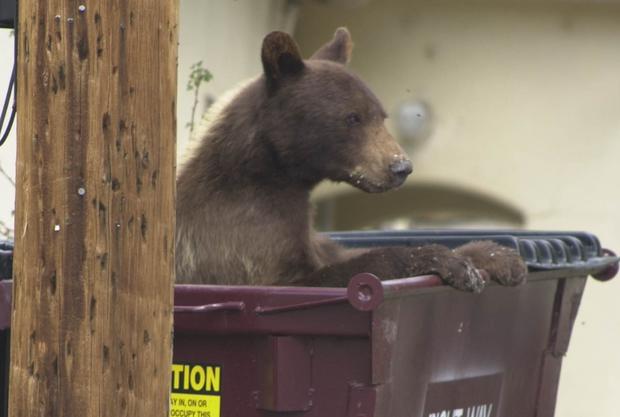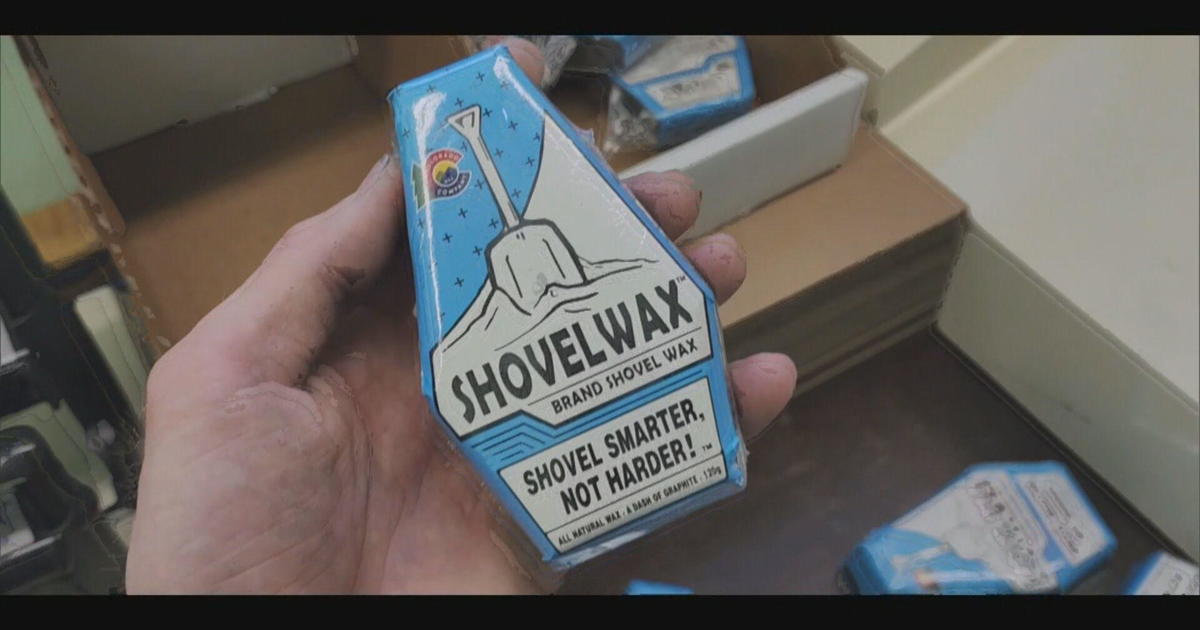VIDEO: Big Bear Prowls For Food In Colorado Springs
COLORADO SPRINGS, Colo. (CBS4) -- Colorado Parks and Wildlife says "fat bear season" is here! A game camera in central Colorado spotted a large bear rummaging around for food in Colorado Springs before the temperature dropped.
Sue, who captured the video, said she's seen a sow and two cubs in the area lately.
Right now, bears are reaching the peak of hyperphagia, officials say. Hyperphagia triggers a "feeding frenzy" to gain much-needed fat storage to help ensure winter survival.
The bears are looking for 20,000 calories a day - that's like eating 20 chicken sandwiches, 10 large fries, 10 sodas and 10 milkshakes every day for a month!
"Bears can roam 20 hours a day looking for the 20,000 calories they need to prepare for hibernation. They'll search the landscape for high-calorie foods like fruit and acorns... or they can work less and eat more from trash cans or dumpsters that aren't bearproofed," CPW tweeted Thursday.
"If given a choice between foraging for food for 20 hours or getting all the calories needed from a few dumpsters in one alley, which would you choose? Bears are extremely smart and will try to get as many calories as quickly and as easily as they can before denning for the winter," CPW Interpretation and Wildlife Viewing Coordinator Mary McCormac stated. "That really puts it on us as humans to be responsible with our property, especially our trash."
Bearproofing homes, cars and other personal property not only helps keep people safe, but it can also prevent conflicts and even the needless death of a bear. Below are the easy steps people can take to protect bears:
Keep Bears Out
-
Close and lock all bear-accessible windows and doors when you leave the house, and at night before you go to bed.
-
Install sturdy grates or bars on windows if you must leave them open.
-
Keep car doors and windows closed and locked if you park outside. Make sure there's nothing with an odor in your vehicle, including candy, gum, air fresheners, trash, lotions and lip balms.
-
Close and lock garage doors and windows at night and when you're not home; garage doors should be down if you are in the house but not outside.
-
Install extra-sturdy doors if you have a freezer, refrigerator, pet food, bird seed, or other attractants stored in your garage.
-
Remove any tree limbs that might provide access to upper level decks and windows.
-
Replace exterior lever-style door handles with good-quality round door knobs that bears can't pull or push open.
Get Rid of Attractants
-
Don't leave trash out overnight unless it's in a bear-proof enclosure or container. Be sure to research all local ordinances and regulations if vacationing.
-
Clean your trash cans regularly.
-
Don't store food of any kind in an unlocked garage, flimsy shed, or on or under your deck.
-
Don't leave anything with an odor outside, near open windows or in your vehicle, even if you're home. That includes scented candles, air fresheners, lip balms and lotions.
-
Clean-up thoroughly after picnics in the yard or on the deck, cleaning your grills after each use. Don't allow food odors to linger.
-
Only feed birds when bears are denning for the winter. If you want to feed birds when bears are active, bring in liquid or seed feeders at night, or when you leave the house.
-
If you have fruit trees, pick fruit before it gets too ripe. Don't allow fruit to rot on the ground. Electric fences provide good protections for small orchards.
Teach Bears to Remain Wild
-
If a bear comes close to your home, scare it away. Loud noises like a firm yell, clapping your hands, banging on pots and pans or blowing an air horn sends most bears running.
-
Utilize electric fencing, unwelcome mats and scent deterrents like ammonia to teach bears that your property is not bear-friendly.
-
If a bear enters your home, open doors and windows and ensure it can leave the same way it got in. Don't approach the bear or block escape routes.
- Never approach a bear. If a bear won't leave, call your local CPW office. If a bear presents an immediate threat to human safety, call 911.
For more information on the best bearproofing methods for your home, visit Colorado Parks and Wildlife's Living with Bears page or visit cpw.state.co.us.




